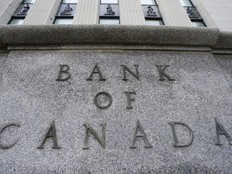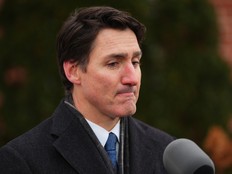Opinion: The Digital Services Tax is not worth a trade war with the U.S.
DST would complicate Canada-U.S. economic relations at the best of times; now it is potentially ruinous

Article content
By Perrin Beatty and Steve Suarez
In threatening to impose a digital services tax (DST), Ottawa appears intent on instigating a trade war with the United States. Canada is fortunate to enjoy both proximity to and free trade with the world’s largest economy, especially at a time when the U.S. is moving closer to its most reliable trading partners. Yet we seem ready to squander this advantage in order to impose a tax the U.S. finds especially irritating.
Digital services taxes are a response to tax systems not keeping up with just how widespread and important such services have become within modern economies. First announced in 2021, Canada’s DST will come into effect in 2024 — though it will be retroactive back to 2022 unless an OECD-developed deal among over 140 countries to re-allocate taxing rights to jurisdictions where businesses make their profits is ratified by the end of this year, which will not happen.
Canada’s DST applies only to entities with €750 million or more in annual worldwide revenue, of which at least $20 million is “in-scope” revenue derived in Canada. “In-scope” is revenue from: providing online marketplace and advertising services, running a social media platform or selling or licensing related user data. The tax is three per cent on revenue greater than $20 million. In practice, Canada’s DST would apply mainly to U.S. tech giants, such as Meta, Walmart and Amazon.
The U.S. objects to DSTs — strongly — viewing them as unfairly targeting its multinationals. Whether ours does so can be debated, but what is indisputable is that Washington perceives it as a de facto tariff on U.S. tech giants. Moreover, affected U.S. firms quite reasonably want their government to reduce its income tax on them by the amount of the Canadian DST, which means the U.S. Treasury would bear some of the cost, which the Washington does not want it to do. On top of all this, retroactively applied taxes are rare and widely disliked.
Though Canada is not alone in considering a DST, our circumstances are unique. Our dependence on U.S. trade makes us especially susceptible to retaliation. Our participation in the North American free trade also comes into play. Washington would have solid grounds to pursue retaliatory trade measures on the basis that U.S.-based companies would be discriminated against. Indeed, WTO rules prohibit members from implementing measures that afford de facto discrimination even when such measures provide “formally identical” treatment.
There’s also the problem that we rejected a July moratorium on DSTs that no fewer than 138 other countries agreed to, making us a conspicuous outlier on this issue.
What should Canada do? At a minimum, we should join the moratorium to give negotiations more time to succeed and preserve the international tax consensus. The U.S. ambassador to Canada recently said that all the U.S. wants is “an additional year or two to try and put the OECD framework in place.” We should also consider eliminating the DST’s retroactivity and/or re-designing it in a way that doesn’t violate our North American and WTO obligations.
Bottom line? We need to recognize that U.S. trade retaliation against Canada has garnered broad bipartisan support in Washington, which is a very rare thing in today’s political climate. Because countervailing trade measures require no tribunal decision-making process, the U.S. is essentially prepared to retaliate at a moment’s notice. Action against us will therefore be unilateral, swift, and targeted to the tune of considerably more than the $7 billion in revenue the DST is likely to raise over its first five years.
The Americans have much more than $7 billion at stake in fighting back against U.S.-focused DSTs worldwide. Ottawa would be wise to join the rest of the world, delay implementing the DST and allow OECD tax negotiations the time they need to be completed. The DST would complicate Canada-U.S. economic relations at the best of times; now it is potentially ruinous. This is not a hill Canada should choose to die on.
Perrin Beatty is president and CEO of the Canadian Chamber of Commerce. Steve Suarez, partner at Borden Ladner Gervais LLP, is co-chair of the Chamber’s economics and taxation committee.
Bookmark our website and support our journalism: Don’t miss the business news you need to know — add financialpost.com to your bookmarks and sign up for our newsletters here.









Postmedia is committed to maintaining a lively but civil forum for discussion. Please keep comments relevant and respectful. Comments may take up to an hour to appear on the site. You will receive an email if there is a reply to your comment, an update to a thread you follow or if a user you follow comments. Visit our Community Guidelines for more information.